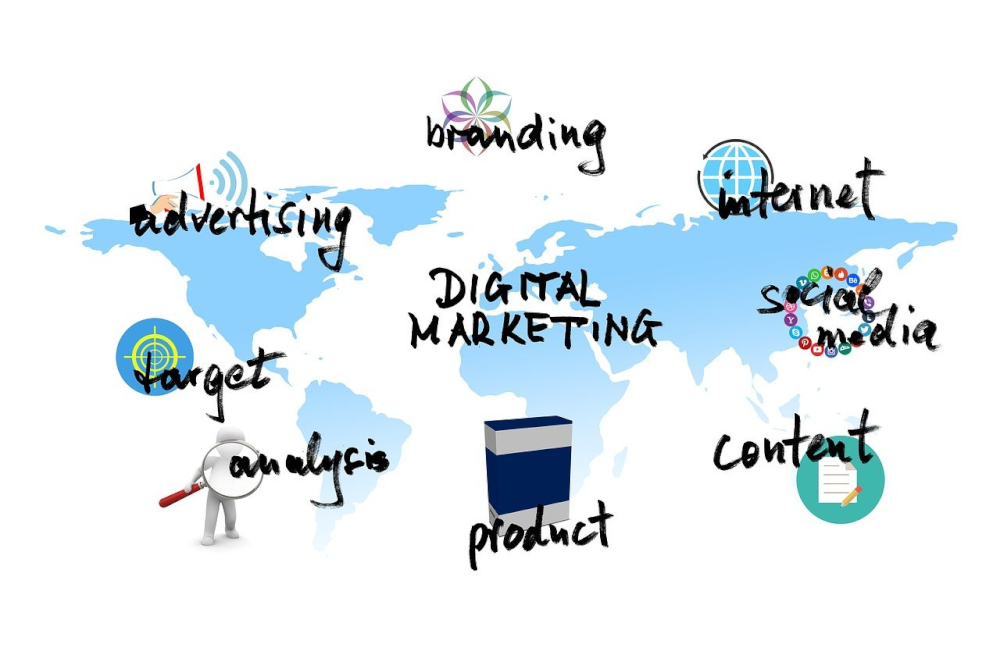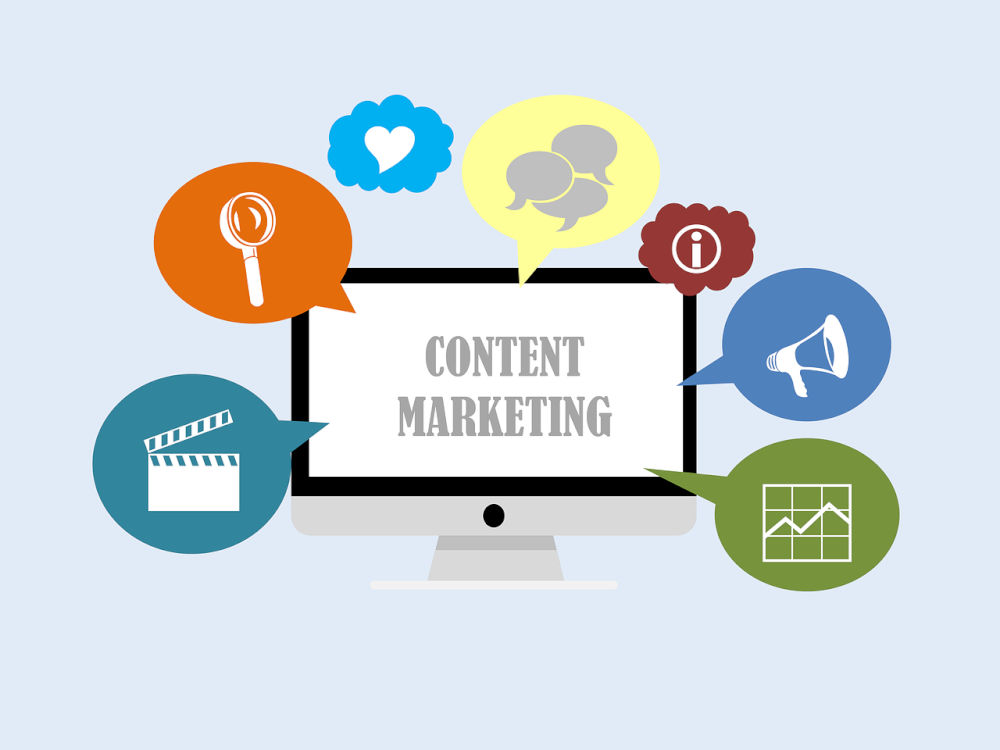
In the ever-changing realm of digital marketing, two heavyweight strategies continually vie for dominance: content marketing and advertising. Both approaches have their distinct advantages and can help businesses build awareness and drive conversions.
However, the question remains: which strategy emerges as the victor in the digital age?
Content marketing, a powerful tool in engaging and educating audiences, focuses on creating valuable and relevant content that resonates with consumers. By providing useful information and insights, businesses can establish thought leadership, foster trust, and ultimately drive customer loyalty.
On the other hand, advertising employs targeted messaging and promotional tactics to reach a wider audience and generate immediate results.
While both content marketing and advertising are essential components of a comprehensive digital marketing strategy, their effectiveness may vary depending on the goals, target audience, and industry of the business.
In this article, we will delve into the strengths and weaknesses of each approach, comparing their impact on brand awareness, customer engagement, and conversion rates.
By understanding the distinct benefits of content marketing and advertising, businesses can make informed decisions to maximise their digital marketing efforts and outshine their competition in the digital age.
Understanding the Goals and Objectives of Content Marketing
Content marketing, a powerful tool in engaging and educating audiences, focuses on creating valuable and relevant content that resonates with consumers. The primary goal of content marketing is to provide information and insights that benefit the audience rather than directly promoting a product or service.
By offering valuable content, businesses can establish thought leadership, foster trust, and ultimately drive customer loyalty.
Content marketing aims to address the needs of the target audience. By delivering valuable information, businesses can position themselves as experts in their industry and build credibility.
This approach allows businesses to establish long-term relationships with customers, as they provide ongoing value beyond the initial purchase.
Benefits of Content Marketing
There are various benefits to employing a content marketing strategy.
Firstly, content marketing helps businesses build brand awareness. By consistently delivering high-quality content, businesses can increase their visibility in search engine results and attract organic traffic.
Additionally, content marketing allows businesses to engage with their audience and foster a sense of community. Through blog comments, social media interactions, and email newsletters, businesses can establish a two-way conversation with their customers and better understand their needs and preferences.
Furthermore, content marketing is cost-effective compared to traditional advertising.
Instead of paying upfront for ad space, businesses can create and distribute content through their owned channels, such as websites and social media platforms. This not only helps reduce marketing costs but also allows for greater control over the messaging and brand image.

Understanding the Goals and Objectives of Advertising
On the other hand, advertising employs targeted messaging and promotional tactics to reach a wider audience and generate immediate results.
Unlike content marketing, advertising focuses on direct promotion and aims to drive immediate action from the audience. The primary goal of advertising is to increase brand visibility, drive traffic, and generate leads or sales.
Advertising is particularly effective in increasing brand exposure and reaching a large audience quickly. By utilising various advertising channels, such as search engine ads, display ads, social media ads, and influencer partnerships, businesses can target specific demographics and increase their brand’s reach.
Additionally, advertising allows for precise targeting options, enabling businesses to reach their ideal customers in a more direct and personalised way.
Benefits of Advertising
Advertising offers several advantages that content marketing may not provide.
Firstly, advertising allows for greater control over the messaging and presentation of the brand. Through carefully crafted ad copy, visuals, and calls-to-action, businesses can create a compelling and consistent brand image.
This controlled messaging can help businesses establish a strong brand identity and differentiate themselves from competitors.
Furthermore, advertising can generate immediate results and drive quick conversions. By strategically placing ads in front of the target audience, businesses can prompt immediate action, such as making a purchase, signing up for a newsletter, or requesting more information.
This immediate impact can be especially valuable for businesses looking to drive sales and meet short-term objectives.
Key Differences Between Content Marketing and Advertising
While both content marketing and advertising serve essential roles in a comprehensive digital marketing strategy, they differ in several key aspects.
Content marketing focuses on building long-term relationships with the audience by offering valuable information and insights. This approach fosters trust and loyalty, as customers perceive the brand as a reliable source of knowledge.
On the other hand, advertising focuses on immediate results and aims to prompt immediate action from the audience. It is more transactional in nature and aims to generate conversions quickly.
Another key difference lies in the level of control over messaging and brand presentation.
Content marketing allows for greater flexibility and creativity, as businesses can experiment with different formats and storytelling techniques.
Conversely, advertising requires more precision and adherence to brand guidelines, as the messaging needs to be concise and impactful within a limited space or time frame.
The Role of Storytelling in Content Marketing
Storytelling plays a crucial role in content marketing. By leveraging the power of narratives, businesses can captivate their audience and create a deeper emotional connection. Stories have the ability to evoke emotions, engage the audience, and make the content more memorable.
Through storytelling, businesses can convey their brand values, showcase customer success stories, and create a narrative that resonates with the target audience.
Effective storytelling in content marketing involves understanding the target audience’s needs, desires, and pain points. By crafting narratives that address these elements, businesses can create content that is relatable and valuable to the audience.
Whether it’s through blog articles, videos, or social media posts, storytelling can elevate the impact of content marketing and make it more compelling.
The Role of Creativity in Advertising
Creativity is a vital component of successful advertising. In a crowded digital landscape, businesses need to stand out and capture the audience’s attention.
Creative advertising campaigns can break through the noise and leave a lasting impression on the audience. By employing innovative visuals and catchy slogans, businesses can create ads that resonate with the target audience.
Creativity in advertising involves thinking outside the box and finding unique ways to communicate the brand’s message. It allows businesses to differentiate themselves from competitors and create a distinct brand identity.
Whether it’s through humor, emotional appeal, or thought-provoking messages, creative advertising can leave a lasting impact on the audience and drive brand recognition.

Measuring Success in Content Marketing
Measuring the success of content marketing involves tracking various metrics that indicate the effectiveness of the strategy.
One key metric is website traffic, which includes the number of visitors, page views, and time spent on the website. Increased website traffic indicates that the content is attracting and engaging the audience.
Another metric is social media engagement, which includes likes, comments, shares, and mentions. Higher levels of engagement indicate that the content is resonating with the audience and generating conversations.
Additionally, lead generation and conversion rates are important metrics to monitor. By tracking the number of leads generated and the conversion rate from leads to customers, businesses can assess the effectiveness of their content in driving conversions.
Measuring Success in Advertising
Measuring the success of advertising involves tracking various metrics that indicate the impact of the campaigns.
One key metric is impressions, which measures the number of times an ad is displayed. Higher impressions indicate greater exposure and reach.
Click-through rate (CTR) is another important metric, as it measures the percentage of people who click on the ad after seeing it. A higher CTR indicates that the ad is compelling and prompts action.
Conversion rate is a crucial metric to measure the effectiveness of advertising campaigns. It measures the percentage of people who complete a desired action, such as making a purchase or filling out a form, after clicking on the ad.
By tracking conversion rates, businesses can assess the ROI of their advertising efforts and optimise their campaigns accordingly.
Integrating Content Marketing and Advertising for Maximum Impact
While content marketing and advertising have their distinct benefits, integrating both strategies can amplify their impact and achieve greater results.
By combining the storytelling and thought leadership of content marketing with the immediate impact and reach of advertising, businesses can create a digital marketing strategy that engages, educates, and converts.
Integrating content marketing and advertising involves aligning messaging and leveraging the strengths of each approach.
For example, businesses can create content that addresses common pain points and then promote that content through advertising channels to reach a wider audience.
This integration allows businesses to build awareness through advertising and provide valuable content that nurtures leads and drives conversions.

Marketing vs Advertising vs PR vs Branding
It is important to distinguish between marketing, advertising, public relations (PR), and branding, as they are often used interchangeably but serve different purposes.
- Marketing encompasses the overall strategy and activities aimed at promoting a product or service. It includes both advertising and content marketing, as well as other comp onents such as market research, product development, and pricing strategies. Content marketing, on the other hand, is a subset of marketing that focuses on creating valuable and relevant content to engage and educate the audience.
- Advertising is a subset of marketing that focuses on promoting a product or service through paid channels. It involves creating and placing advertisements to reach a target audience and generate immediate results.
- Public relations (PR) involves managing the reputation and communication of a brand or organisation. It includes activities such as media relations, crisis management, and community engagement. PR aims to build a positive image of the brand and maintain relationships with stakeholders.
- Branding encompasses the overall perception image of a brand in the minds of consumers. It involves creating a unique identity, positioning the brand in the market, and communicating its values and personality. While advertising and content marketing contribute to branding efforts, branding extends beyond marketing activities and encompasses all touchpoints with the target audience.
Choosing the Right Strategy for Your Business
When deciding between content marketing and advertising, businesses should consider their goals, target audience, and industry.
Content marketing is best suited for businesses looking to establish thought leadership, build trust, and growing long-term relationships with the audience.
It is particularly effective for industries that require in-depth knowledge and expertise, such as healthcare, finance, and technology.
On the other hand, advertising is a suitable strategy for businesses looking to drive immediate results, increase brand visibility, and reach a larger audience.
It is especially effective for industries with shorter sales cycles or where competition is high, such as retail, ecommerce, and hospitality.
Ultimately, the ideal strategy may involve a combination of content marketing and advertising, tailored to the specific needs and objectives of the business.
By understanding the strengths and weaknesses of each approach and considering the unique requirements of the business, businesses can make informed decisions to maximise their digital marketing efforts and outshine their competition in the digital age.
At DesignQ, our team of knowledgeable advisors will collaborate directly with you to create personalised marketing plans that are in line with your objectives and target market.
We offer the direction and support you need to succeed in today’s cutthroat business environment, from branding and message to digital marketing and performance tracking.
Activate your strategy today with the help of DesignQ’s marketing consultancy services. To begin on your route to success, get in touch with us right away.
Conclusion
Content marketing focuses on building trust, thought leadership, and long-term relationships with the audience through valuable and relevant content. Advertising, on the other hand, aims to generate immediate results, increase brand visibility, and prompt immediate action from the audience.
While content marketing excels in engaging and educating the audience, advertising offers greater control over messaging and immediate impact.
By integrating both strategies and leveraging their distinct benefits, businesses can create a powerful digital marketing strategy that drives brand awareness, customer engagement, and conversions.
Ultimately, the choice between content marketing and advertising depends on the goals, target audience, and industry of the business.
By understanding the strengths and weaknesses of each approach and considering the unique requirements of the business, businesses can make informed decisions to maximise their digital marketing efforts and achieve success in the digital age.










